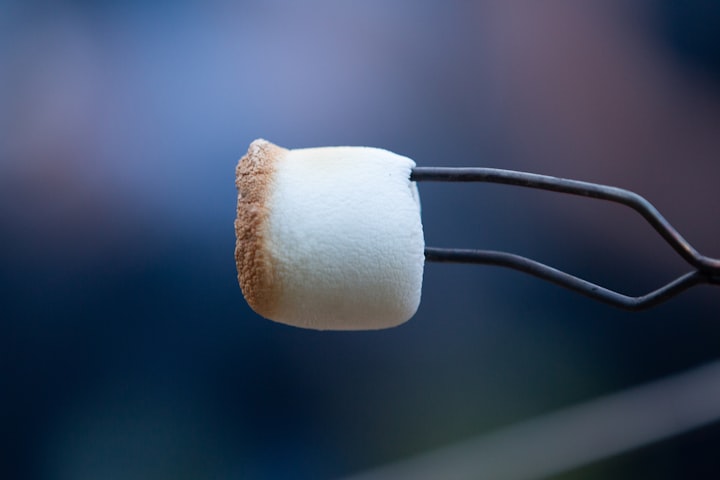Haute Cuisine vs. Campfire Classic
The Role of AI in the New Age of Gastronomy

The image of a Michelin-starred chef, hunched over a stove with a practiced flick of the wrist, is familiar in fine dining. But what if the mastermind behind that perfectly plated creation wasn't a toque-clad maestro, but lines of code running on a machine? Artificial intelligence (AI) is rapidly changing the recipe for success in luxury gastronomy, promising to revolutionize flavor profiles and dining experiences. Yet, across the contuumn of culinary indulgence, could AI also hold the key to perfecting the quintessential campfire treat – the humble s'more?
AI is stepping in as a sous chef, analyzing vast datasets of flavor profiles, ingredients, and historical culinary trends. Imagine a future where AI can predict a diner's palate with uncanny accuracy, crafting a bespoke tasting menu that pushes the boundaries of flavor combinations while adhering to personal preferences. AI-powered kitchens utilizing exotic ingredients responsibly sourced from around the globe, seamlessly integrated into dishes that tantalize the taste buds in unexpected ways.
However, the application of AI in gastronomy isn't solely about novelty. It can also optimize the cooking process itself. Imagine a perfectly seared steak, cooked to perfection every single time, thanks to AI-controlled grills that factor in variables like meat thickness and marbling. Similarly, AI-powered recipe development can streamline the creation of complex dishes, ensuring consistency and minimizing waste.
Across a vast culinary spectrum lies the s'more, a beloved symbol of childhood. AI has the potential to elevate this experience too. Imagine an AI-powered firepit that self-regulates, ensuring the perfect bed of embers for toasting marshmallows. Perhaps even a marshmallow roaster that rotates with robotic precision, guaranteeing a golden-brown exterior without the ubiquitous burnt patch.
Of course, there's a certain charm in the imperfection of a s'more – the unevenly toasted marshmallow, the human error of an imperfectly singed graham cracker. But for those seeking ultimate s'more satisfaction, AI could offer a solution.
The debate around AI in food preparation is set on a low simmer. While some may view it as an unwelcome intrusion into the sacred realm of culinary creativity, others see it as a powerful tool for exploration and optimization. Ultimately, the question remains: Does AI enhance the dining experience, or homogenize it, robbing it of its soul?
Concerns linger about the potential for homogenization. If AI dictates flavor profiles based on vast datasets of "popular" preferences, could we see a future where culinary experiences become predictable and bland? Would the element of surprise, and unexpected yet delightful flavor combinations, be lost in the pursuit of algorithmic perfection?
The true test of AI's role lies in its ability to complement, not replace, human creativity. A future where chefs collaborate with AI "sous chefs" to explore uncharted flavor territories. Where AI analyzes vast archives of historical recipes and cultural influences, suggesting novel ingredient pairings or forgotten techniques. In this scenario, AI acts as a springboard for innovation, pushing culinary boundaries while maintaining the humanity that imbues a dish with soul.
Ultimately, the fear of AI robbing food of its soul is unfounded. After all, the human element of a bespoke meal goes far beyond simply preparing a meal. It's about the stories behind the recipes passed down through generations, the emotions evoked by a shared culinary experience, and the cultural significance attached to specific dishes. AI can't replicate the warmth of a family recipe or the shared joy found in a perfectly charred s'more. Instead, its role may lie in enhancing these experiences, expanding the possibiities and allowing humans to delve deeper into the world of food and create more meaningful connections in a world where man and machine work in gastronomic harmony.
About the Creator
Joshua Estrin
Writer & observer, I explore the intersection of luxe life & tech with a keen eye on humanity. Here to share the the bumps in the road and the quirky side of what makes us human. Join me?
Enjoyed the story? Support the Creator.
Subscribe for free to receive all their stories in your feed. You could also pledge your support or give them a one-off tip, letting them know you appreciate their work.





Comments (1)
I think this is a very good point: If AI dictates flavor profiles based on vast datasets of "popular" preferences, could we see a future where culinary experiences become predictable and bland? People would have to select the 'close enough' option or not any if nothing was close enough. Ugh. Nice story.